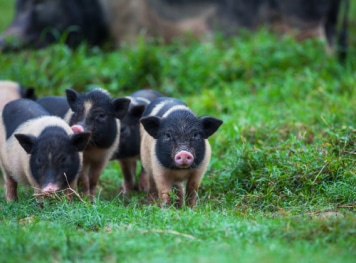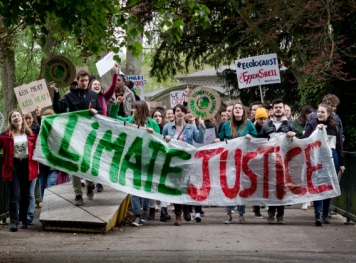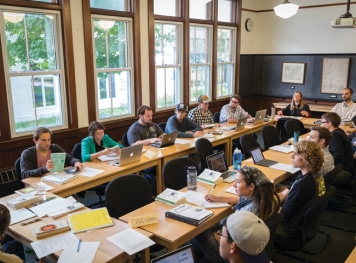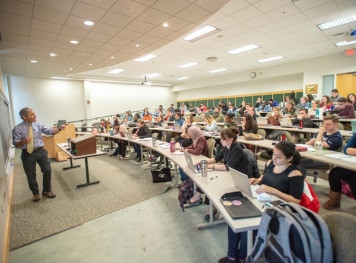Concentrations
Vermont Law and Graduate School students may pursue specialized concentrations that act as a tangible indication that students have mastered a specific subject matter area. VLGS offers concentrations in Animal Law, Business Law, Climate Law, Criminal Law, Energy Law, Food and Agriculture Law, General Practice, Land Use Law, and Water Resources Law. VLGS also offers a concentration in International and Comparative Law.


Concentration in Animal Law
The Concentration in Animal Law focuses on animal welfare and protection in the context of food and agricultural systems, climate change, and other environmental challenges.

Concentration in Business Law
The Concentration in Business Law addresses the legal issues faced by start-up and well-established businesses. A combination of required and elective courses allows students to focus on business concerns that align with their broader interests.

Concentration in Climate Law
The Concentration in Climate Law addresses emerging U.S. and international law governing mitigation of and adaptation to climate change.

Concentration in Criminal Law
The Concentration in Criminal Law provides students with broad-based, comprehensive training in the law and skills needed to become prosecutors, defenders, or to practice criminal law in a private firm setting. It is easily compatible with other requirements.

Concentration in Energy Law
The Concentration in Energy Law involves the study of law and policy relating to renewable energy development and the environmental problems associated with traditional energy production.

Concentration in Food and Agriculture Law
The Concentration in Food and Agriculture Law covers sustainable agriculture and food and the connections these systems have to the environment, energy, human and animal health, labor, and climate change.

Concentration in International and Comparative Law
Earning a concentration in International and Comparative Law from Vermont Law and Graduate School demonstrates a committed focus on international law. Program graduates have the skills and substantive knowledge to play a strong role in international firms, international organizations, NGOs, and government agencies.